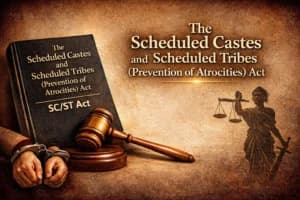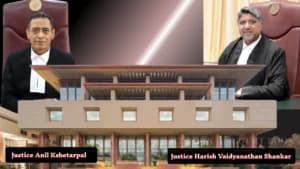In a packed courtroom at the Orissa High Court on Wednesday, the bench finally drew the line on a three-decade-old dispute over alleged encroachment on “Gochar” (village grazing) land in Bhagabatipur, Khordha. What unfolded felt almost like the Court was exasperated, questioning why authorities slept over the matter for so long even when villagers kept knocking on every possible door. The bench, led by Chief Justice Harish Tandon and Justice Murahari Sri Raman, delivered a firm message: illegal occupation of government land will not be tolerated.
Background
For years, villagers of Bhagabatipur had complained that more than 30 people had raised permanent structures on Plot No.1793 (now Plot 2115), which is officially recorded as reserved pasture land. The petitioners had approached everyone - the Tahasildar, the Sub-Collector, even the Chief Minister’s grievance cell - but almost nothing moved on the ground.
Read also:- Supreme Court Clarifies Priority Between EPF Dues and Secured Creditors in Jalgaon Sugar Factory
Documents placed before the Court showed that eviction notices were issued as far back as 2010, penalties were collected twice, and even the Lokpal had closed proceedings believing eviction would follow. But the land remained in the hands of encroachers, with authorities citing lack of police support for years.
One of the judges even remarked during the hearing, “How can Gochar land, meant for community use, be allowed to vanish like this?” according to counsel present in court.
Read also:- Supreme Court Quashes Prosecution Against IAS Officer Over Delayed Arms Licence Case After Finding Sanction "Non-Speaking" and Legally
Court’s Observations
During arguments, the Court noted that the land was clearly recorded as “Gochar, Rakshit,” meaning it cannot be settled in favour of anyone - not even those claiming to be landless. Further, the Court highlighted that the encroachers themselves indirectly admitted they were in illegal occupation by insisting that even petitioners should be targeted alongside them.
The bench was particularly blunt about the government’s inaction. “The authorities cannot take a casual or weak-kneed approach when public land is being swallowed,” the judges observed. The Court referred to repeated warnings from the Revenue Department, including a 2024 policy circular declaring a “zero tolerance” stance toward encroachment.
In what felt like a stern admonition, the Court said encroachers cannot seek sympathy because “doing so would amount to giving a premium on illegality.” It emphasised that public land is a trust held by the State and cannot be allowed to be grabbed by a few at the cost of the entire village.
Read also:- Supreme Court Rejects Anil Kapoor's Review Plea in Family Criminal Dispute, Says No "Error on Record"
Decision
Bringing the prolonged litigation to an end, the Court issued clear, time-bound directions:
- The Superintendent of Police, Khordha, must deploy adequate police force on dates fixed by the Tahasildar for eviction.
- If state police are insufficient, CRPF personnel may be deployed.
- Authorities must demolish all illegal structures on the Gochar land and ensure compliance with the 2024 anti-encroachment policy.
- The entire eviction and restoration exercise must be completed within three months.
With those orders, the Court disposed of the case, noting that “no further pendency is required.” The message was unmistakable - public land is not up for private capture.
Case Title: Tahasildar, Chilika vs State of Odisha & Others
Case Number: W.P.(C) No. 7824 of 2014
Case Type: Public Interest Litigation (PIL) under Articles 226 & 227
Decision Date: 20 November 2025















